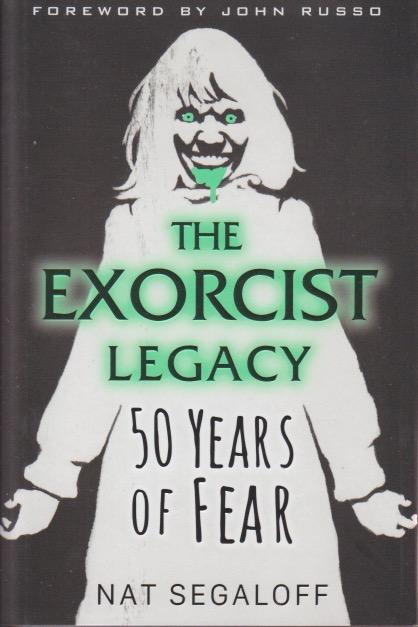
Like The Wicker Man, The Exorcist also turns fifty this December. I was caught up in this half-century mania and so I got ahold of Nat Segaloff’s The Exorcist Legacy: 50 Years of Fear right away. The reading was disrupted by life events, but I’d been enjoying it, as time permitted. Written by a movie insider (as opposed to an ex-academic wannabe), this is a fairly full treatment of the film. It’s actually not unlike what I tried to do with Nightmares with the Bible, but it is yet another testimony of the importance of The Exorcist to our understanding of demons. Although one book can’t really be one-stop shopping for any worthwhile movie (there are plenty of books out there on the subject), this one is well worth reading. For those who enjoy learning about cultural phenomena with a bit of horror tossed in, this is a very good introduction.
One of the things I’ve learned as I’ve tried to break into film reading is that a lot more goes on in making a film than most of us imagine. And when we see a movie we miss an awful lot. I’m no shill for Hollywood, but watching a movie multiple times brings out things that writers, directors, and producers didn’t even notice. Think of the Bible, for comparison. Readers two thousand years later are still finding new things to say about it. The Exorcist has influenced religious outlooks in extremely important ways. Our modern ideas of demons and possession largely go back to this film. Details may change over time, but even the church has had to respond to it, and actual exorcists reference it. The Bible says little about demons (again, Nightmares), so we have to pick such knowledge up from elsewhere.
The one part I found somewhat thin was, not surprisingly, parts of the final chapter, “The Mystery of Faith.” It tends to show when a writer really knows religion. William Peter Blatty, who wrote the novel and screenplay (the latter at least partially), knew Catholicism cold. One of the things I’ve been yammering on about for years is that understanding religion enhances our understanding of horror movies. I’m certain that the connection goes even deeper than that, but books written on horror mention religion often in amateur ways. If we want to get at what’s really going on here, it’s going to be important to listen to those who understand religion as well. None of that detracts from this fascinating book that will throw new light into shadowed corners.
